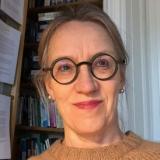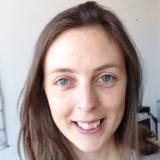Shooting the Canon: Aiming for New Perspectives
The canon, the accepted list of great works and authors, has come under scrutiny for lack of diversity. How is this a problem and how do we make education more diverse and inclusive? Join the event. (English / SG-Certificate*)
Watch the registration:
Shooting the Canon
Diversity and inclusivity are major topics in contemporary society as it involves domains such as culture, politics, and education. In fact, there currently is an increasing scientific interest into the way that education is organized. The canon, the accepted list of great works and great authors, has come under scrutiny for maintaining status quo narratives about whiteness, masculinity, heterosexuality, and ability. In order to contribute to this debate we are hosting this symposium ‘Shooting the Canon: Aiming for New Perspectives’.
The Canon
The canon is not only dominated by Western straight white males, it also stretches back to a distant past with attitudes very different from those of our own. Some of its texts make troubling assumptions about gender relations, sexual preference, race, and empire. At times, these texts even make arguments defending such prejudices, as when Aristotle infamously claimed that some human beings are born to be slaves. Defenders of the canon counter that Western culture is already diverse enough, and that we have to situate major works in their own time.
Case Study
The first part of this symposium is dedicated to a case-study of the exclusion of women in analytic philosophy. The aim of this case-study is to challenge the status quo. But also to collectively think about solutions on how to include social groups that have been historically underrepresented or undersupported in philosophy as an academic discipline.
We aim to contribute to this topic by raising critical questions. For example, why are so many well-known philosophers (dead) white men? How do we deal with discrimination in oft-read works? Can we include thinkers from outside the canon of philosophy? If so, how?
Discussion
By engaging with these questions, we want to inspire participants to think for themselves about ways to make education more diverse and to achieve more inclusion within the academic community and beyond.
Participants will therefore be invited to share their thoughts in an informal environment by reflecting on what has been discussed, pointing out any issue worth deepening or by raising further questions for everyone to reflect upon.
By fostering this participative debate, we hope to broaden the conceptualization of the themes discussed by identifying possible problems, solutions and exchanging ideas.
Eventually, these inputs will be collected to provide recommendations to (philosophy) professors interested in including new perspectives in their curriculum.
With contributions by
-

Katarina Mihaljević
PhD CandidateKatarina Mihaljević is a third year doctorate candidate at Tilburg University and works in themes of history of the analytic philosophy, logic, exile and applied ethics, a topic which she also teaches at the BA level. She also runs a start-up company in energy industry where she busies herself finding most impactful ways to invest responsibly.
She is of opinion that only by understanding mechanisms of exclusion, we can gain a full understanding of the ways in which our canons and academic guilds are created and improve our knowledge of our place in this system which is a first step towards brining novel ways of knowledge overview and transmission.
-

Odile Heynders
Professor of Comparative LiteratureOdile Heynders is Professor of Comparative Literature at the Department of Culture Studies in the School of Humanities & Digital Sciences of Tilburg University. She was a fellow at the Netherlands Institute of Advanced Sciences (NIAS) in 1998/99 and 2004/05. She published several books and many articles on European literature, authorship and strategies of reading and on how literature intervenes in democratic public spheres. Her book Writers as Public Intellectuals, Literature, Celebrity, Democracy (2016) appeared at Palgrave McMillan. Her current book project is on Fictions of Migration - focussing on how literary texts can offer relevant knowledge within the interdisciplinary context of migration studies.
-

Amanda Cawston
Assistant Professor in PhilosophyAmanda Cawston is an Assistant Professor in Philosophy at Tilburg University. Her interests span a broad range of topics in political philosophy, including the ethics of war, non-violence and pacifism, feminist philosophy, and migration ethics. She has written on the topics of pornography, feminism and competition, and alienated condition of contemporary violence. Amanda is also a member of the Philosophy Department’s Diversity & Inclusion Committee and is pleased that some early steps are being taken to question and revise the academy’s approach to ‘the canon’.
-

Bram Medelli
ModeratorBram Medelli is a Dutch-Algerian philosopher with 23 years of life behind him. His perpetual drive to speak and listen to others led him to pursue his liberal arts degree in the picturesque city of Middelburg, where he studied sociology, philosophy and media studies. After spending a gap year talking to people in the catering industry and South-East Asia, he was drawn to Tilburg to pursue a master’s degree in philosophy. The conversations he engaged in there were mainly with dead, white men so when the opportunity of joining MAP presented itself, he grabbed it with both hands.
His interests lie in the philosophy of (online) culture and media, existentialism, and phenomenology, with a general focus on politics. He wants to explore the variety of stories that the world has to offer and hopes he can help build a world where everyone feels like their story can be heard.
More information
This seminar is organized by Studium Generale in cooperation with Sapientia Ludenda and Minorities and Philosophy Tilburg (Tilburg University).
Contact: Annelieke Koster (Studium Generale).
* For students, this event may count towards the SG-Certificate. Check the SG-Certificate website for all the terms and conditions.
